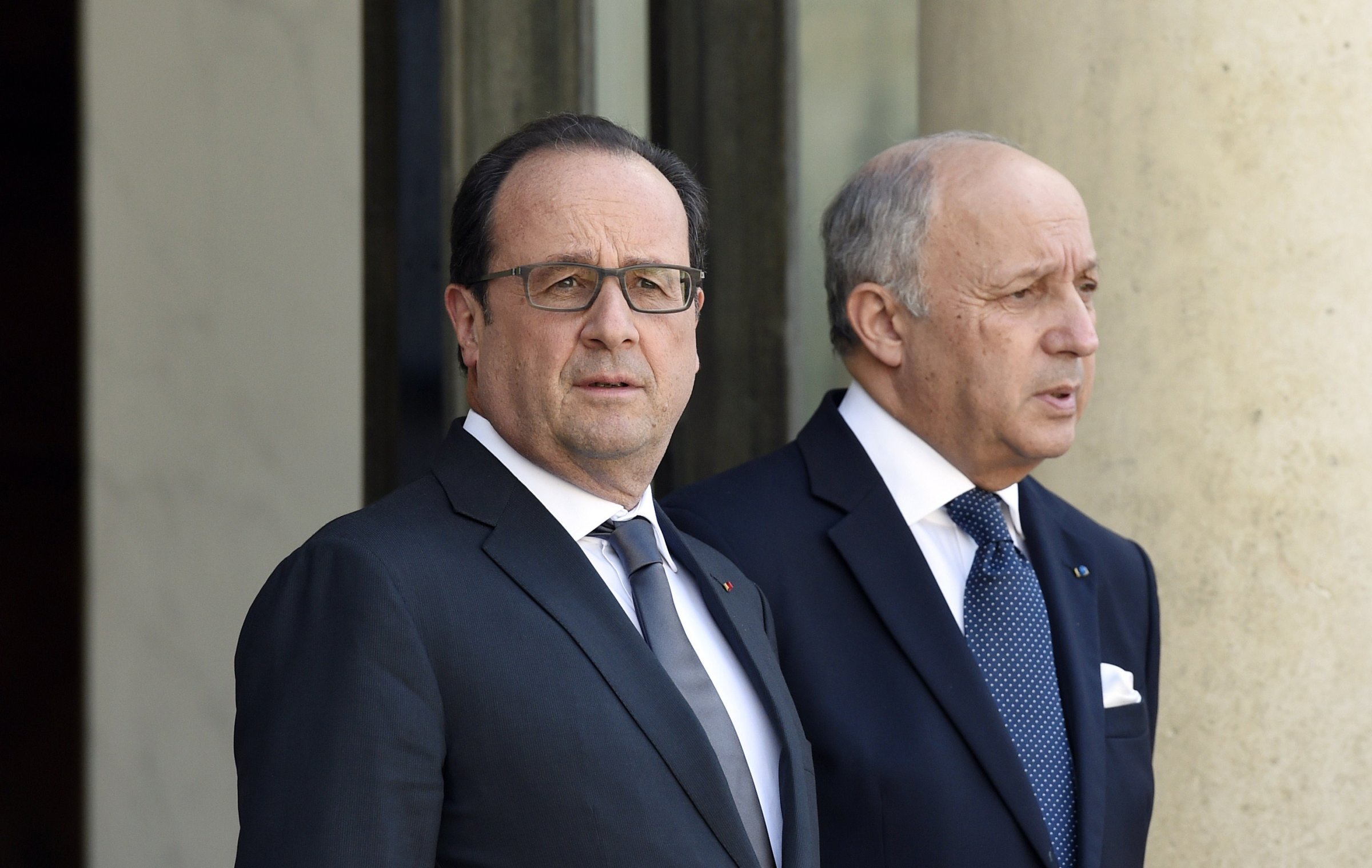
Officially, France was outraged. The nation woke up on Wednesday to the news that the U.S. had been spying on three consecutive French Presidents, including the current one, Francois Hollande, who spent the day fuming in response. He called an emergency meeting of his defense council to discuss the apparent breach. His foreign ministry called in the U.S. ambassador for an official explanation. And Hollande himself referred to the violation of trust between allies as “unacceptable.”
Incidentally, this was the same word that his German counterpart, Angela Merkel, used upon learning in 2013 how the U.S. had been tapping her cell phone. That time the revelation came from the whistleblower Edward Snowden, a former contractor for the U.S. National Security Agency. Wednesday’s leak was sourced in the French media to Snowden’s allies at Wikileaks. But the reaction from the targets of the snooping was so similar that it almost seemed like a rerun, and judging by the way the Merkel phone-tapping drama has played out since it broke two years ago, the French outrage may soon fizzle into complacency as well.
The reason is that, in the modern world, every country seems to spy to the extent of its ability. As the German public learned this spring, their country’s intelligence service, the BND, had for years been helping its American counterpart, the NSA, spy on targets across Europe, including major corporations like Airbus and–you guessed it–the French presidency. That bombshell, which was first published in the German weekly Der Spiegel, made it much harder for Chancellor Merkel to play the innocent victim of nefarious U.S. surveillance.
It also made it difficult on Wednesday for the French government to act completely flabbergasted. Although Prime Minister Manuel Valls insisted that “the emotion and the anger” in France on Wednesday were “legitimate,” he admitted in the same breath that the revelations may not “constitute a real surprise for anyone.”
His government’s spokesman, Stephane Le Foll, even let slip a telling bit of humor when asked how France might retaliate against the U.S. for spying on French Presidents. “We sent the Hermione,” Le Foll told reporters, referring to the replica of an old naval frigate that France sent as a gift to the U.S. in March, loaded with barrels of Hennessy cognac. That ship was meant to be a symbol of how deep the ties run between these two nations–the original Hermione brought the French General Lafayette to help the Americans win their independence from the British in 1780–and Le Foll’s remark hinted that those ties wouldn’t be forgotten amid the latest spying scandal.
As Germany’s experience suggests, no real rupture in relations comes out of these scandals, at least in part because the Europeans rely on the U.S. not only for trade but security and the sharing of intelligence. That doesn’t mean the Germans simply let the matter drop. German media have reported that the the BND has curtailed cooperation with its American peers and the German parliament is still investigating Snowden’s leaked evidence that the U.S. had illegally monitored the communications of millions of German citizens. But Berlin’s probe into the tapping of Merkel’s phone has quietly been put aside. On June 12, the German prosecutor’s office announced in a statement that it was dropping the investigation due to lack of evidence: “The accusation cannot be proven in a legally sound way under criminal law.”
The U.S. had refused to provide the Germans with anything more than “vague statements” about tapping Merkel’s phone. More precisely, the U.S. said at the time that it “is not monitoring and will not monitor the communications of the Chancellor,” pointedly avoiding any reference to what it had or had not done in the past. Adding to the sense of déjà vu, practically the same statement came on Wednesday from a spokesman for the U.S. National Security Council in response to the firestorm in France: the U.S. is “not targeting and will not target the communications of President Hollande,” said the spokesman, Ned Price.
Perhaps that could be taken as a promise that, having been busted spying on its allies, the U.S. would now cut it out, at least when it comes to the heads of state of Germany and France. As for the other leaders of the free world, they may have to wait for the next leak before receiving any such assurances themselves.
Photos: What Obama's Hugs Meant
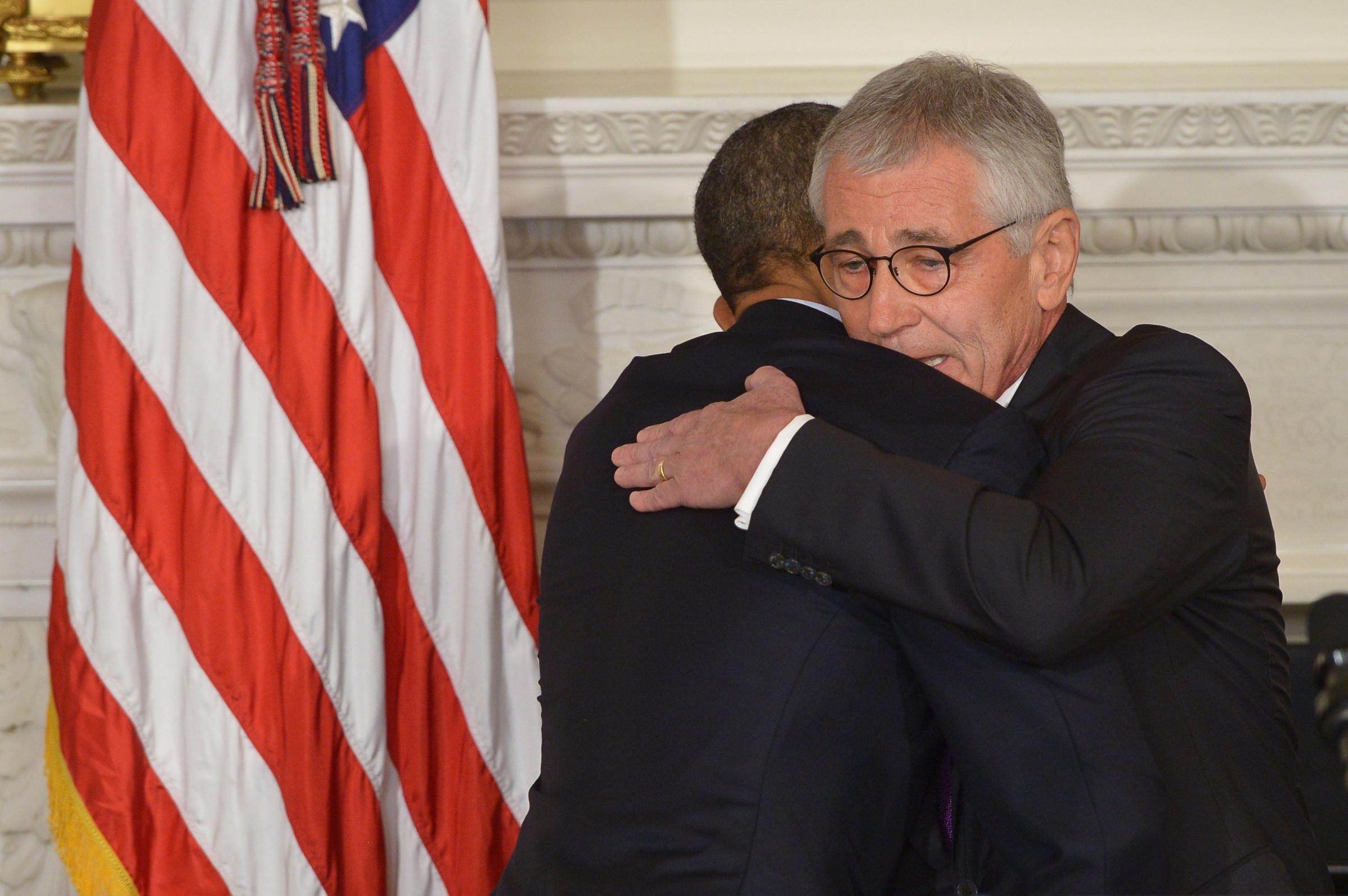
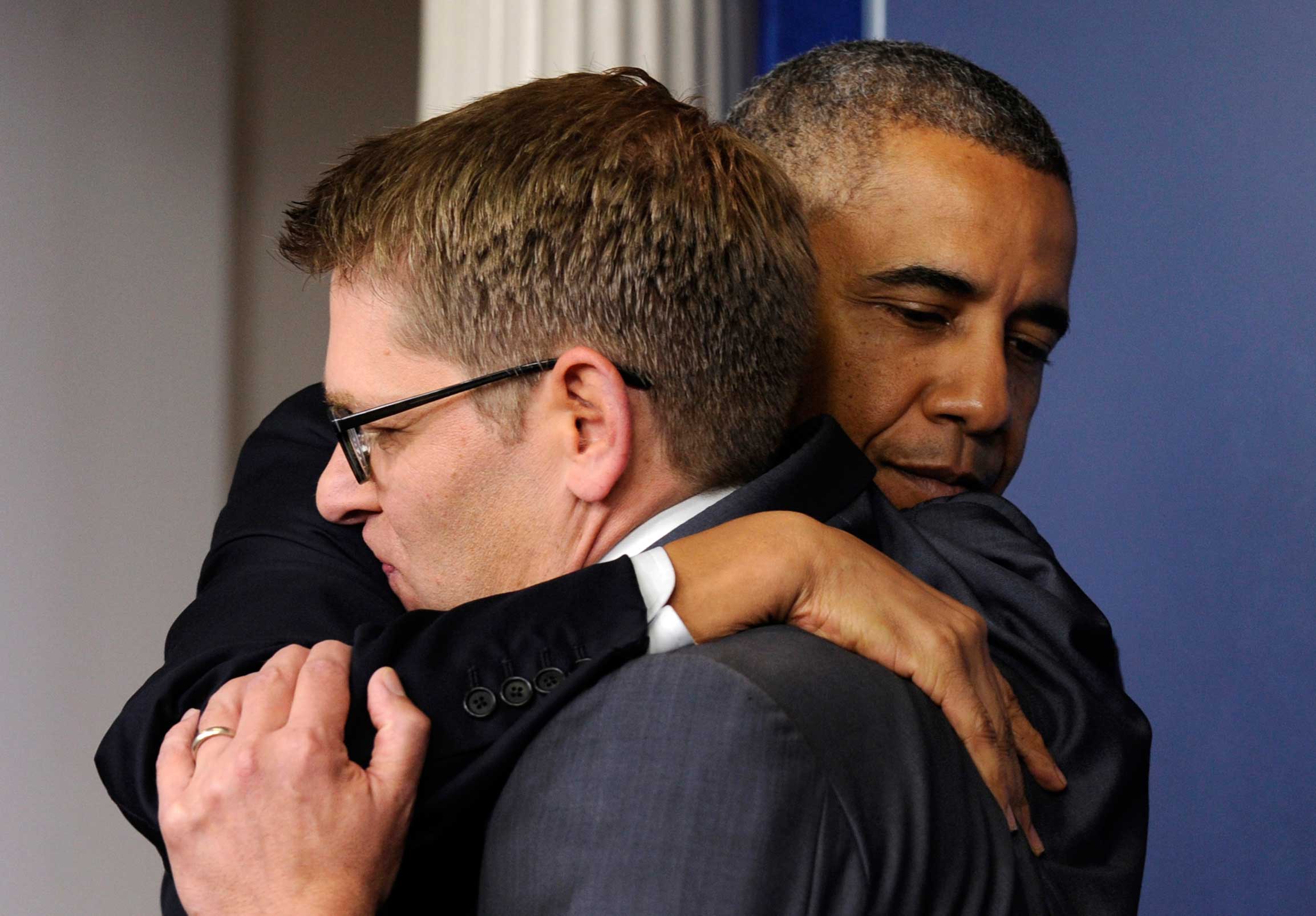
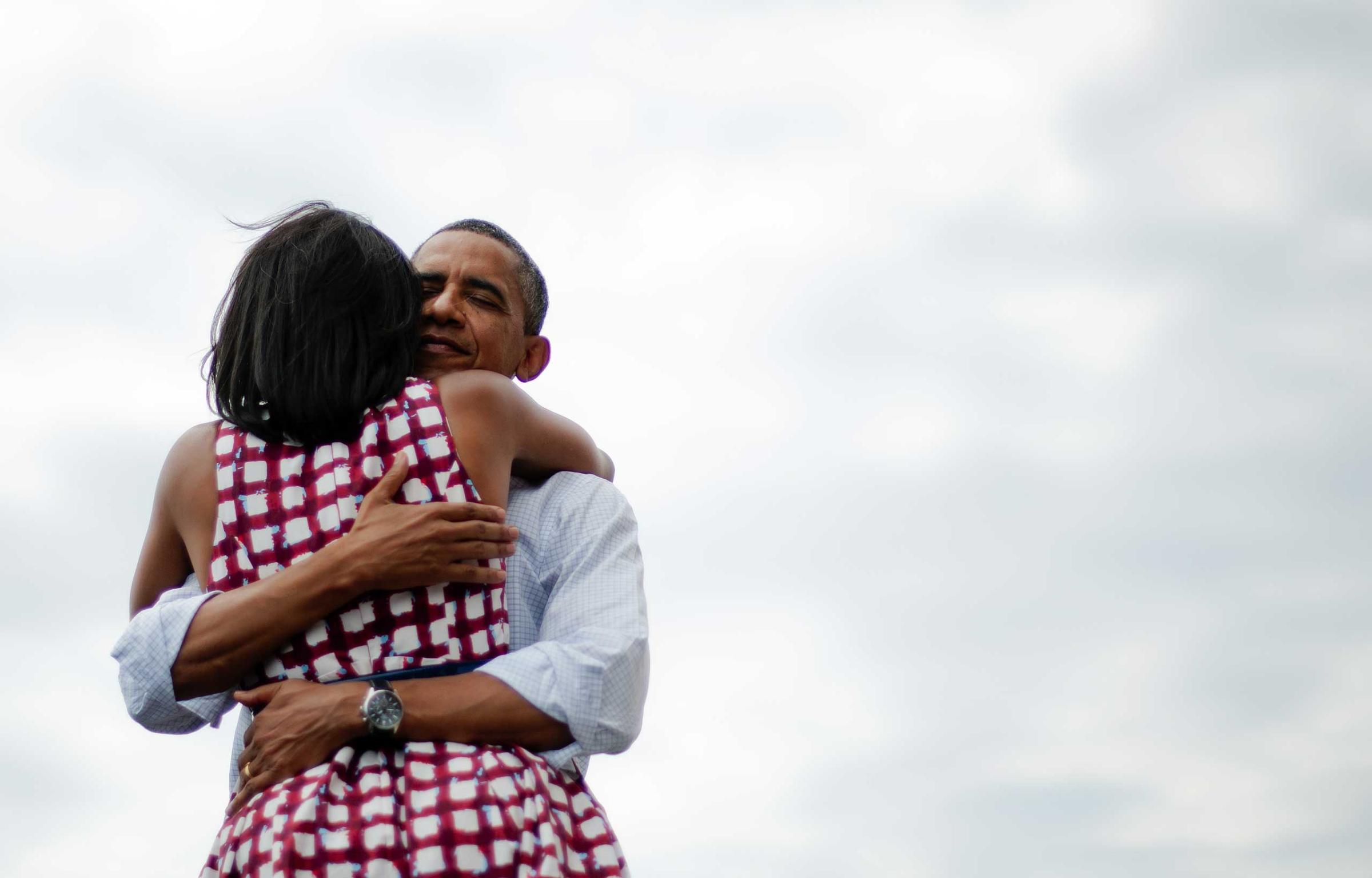
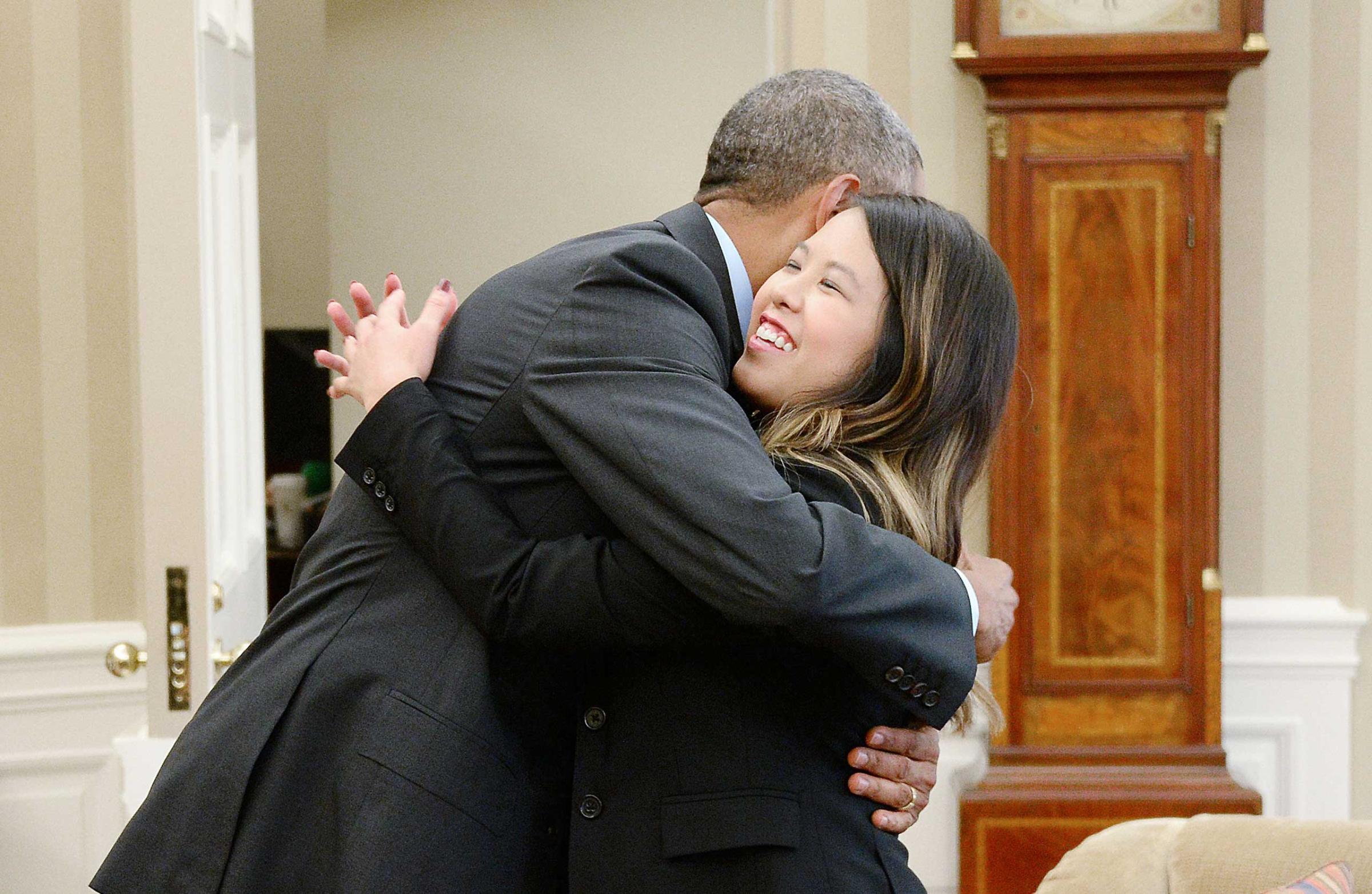
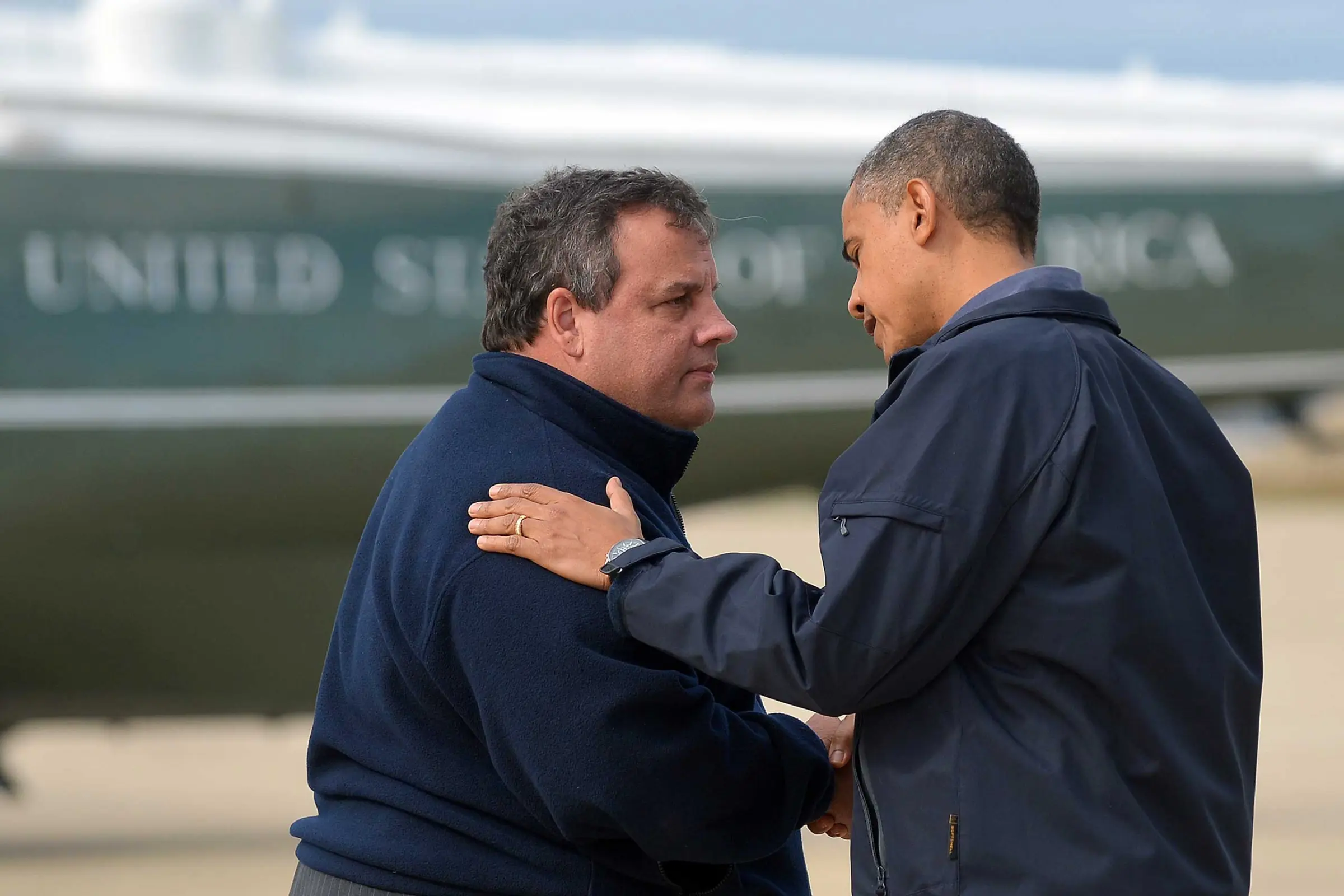
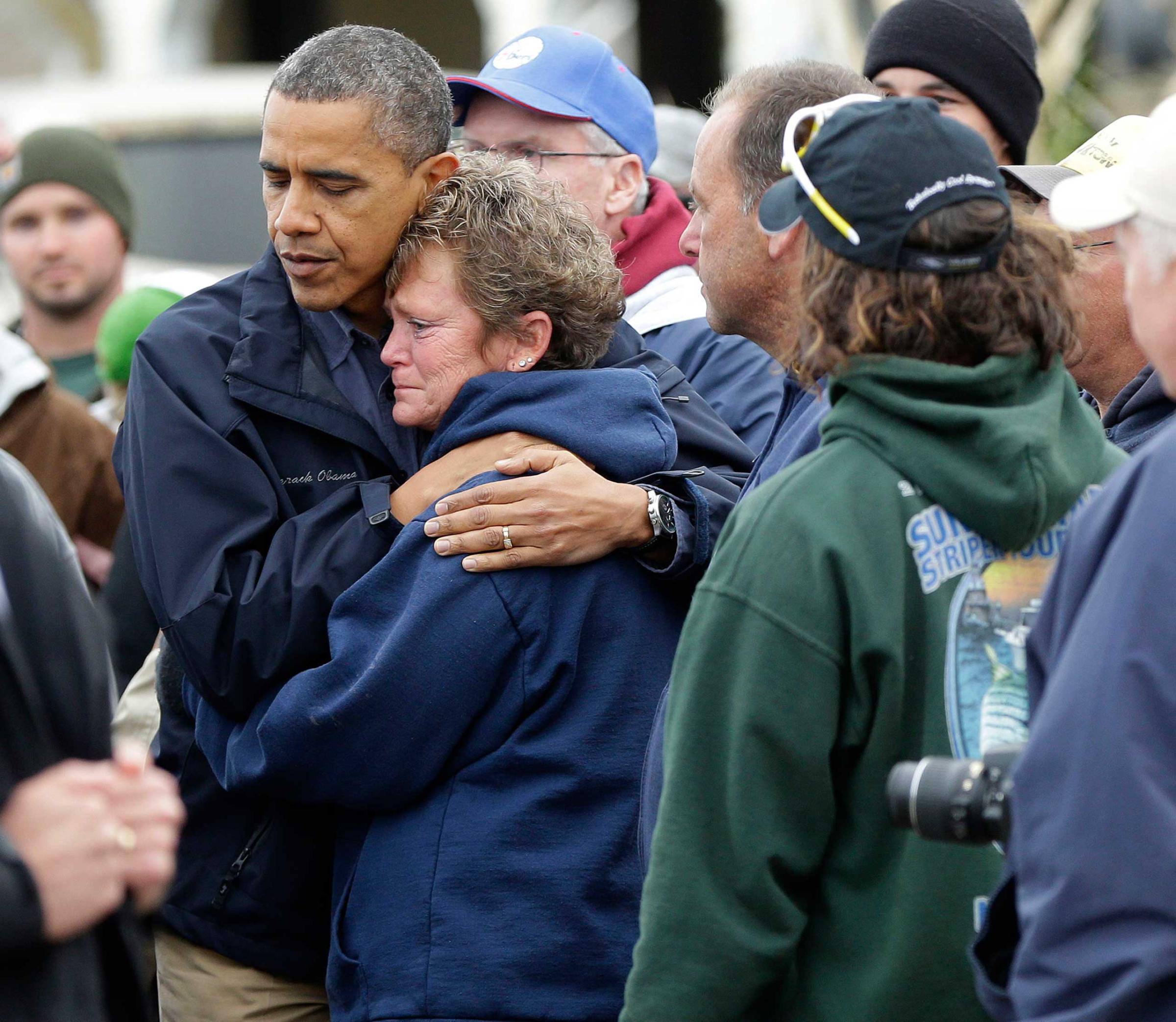
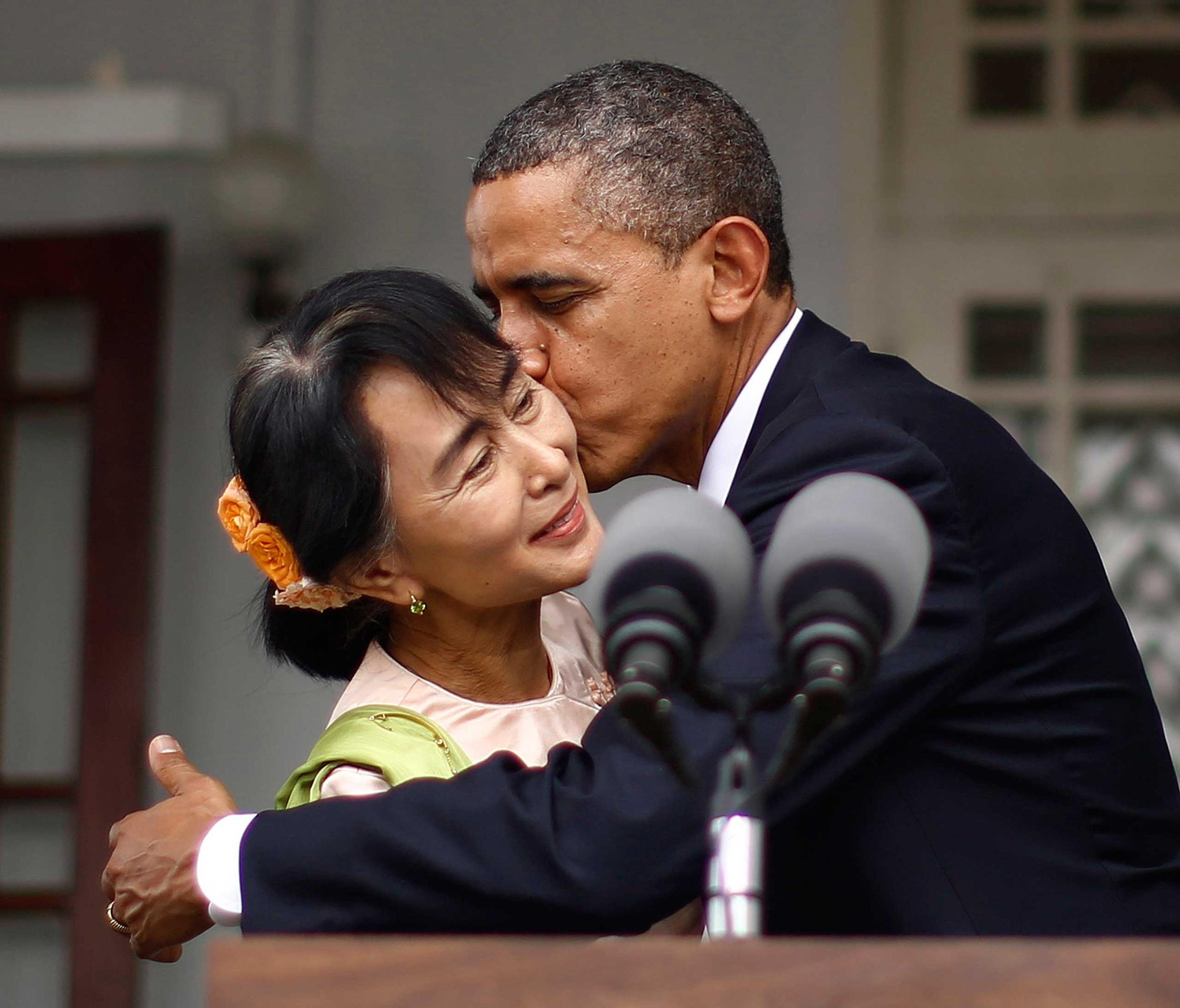
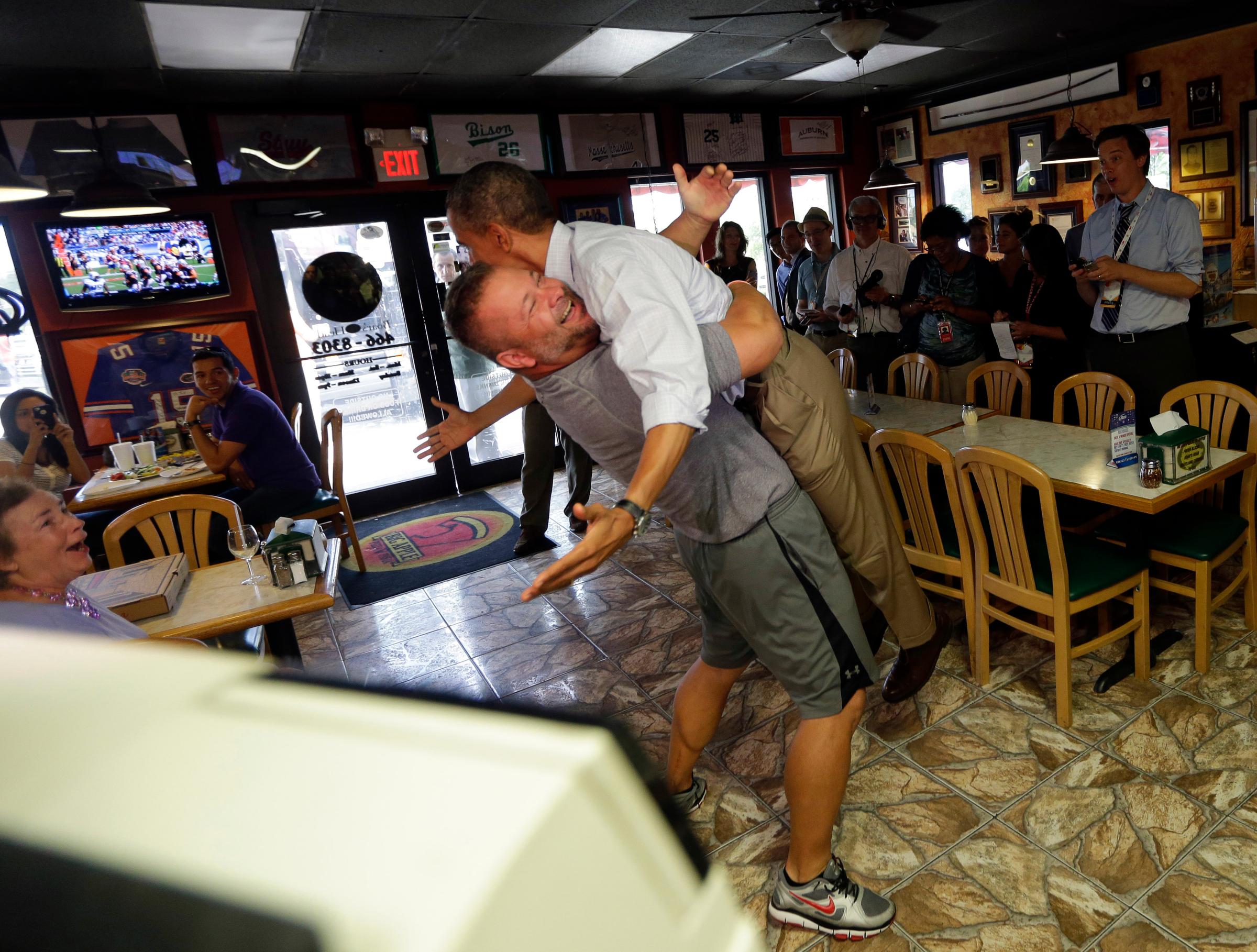
More Must-Reads from TIME
- Why Trump’s Message Worked on Latino Men
- What Trump’s Win Could Mean for Housing
- The 100 Must-Read Books of 2024
- Sleep Doctors Share the 1 Tip That’s Changed Their Lives
- Column: Let’s Bring Back Romance
- What It’s Like to Have Long COVID As a Kid
- FX’s Say Nothing Is the Must-Watch Political Thriller of 2024
- Merle Bombardieri Is Helping People Make the Baby Decision
Contact us at letters@time.com